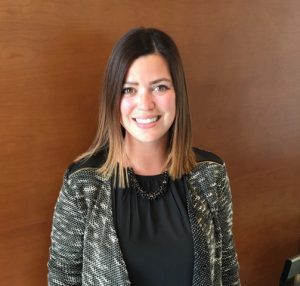

Ramy Ayoub & Rebecca Ruddy – University of Toronto
Scientific publication
Ramy Ayoub #, Rebecca M Ruddy #, Elizabeth Cox, Adeoye Oyefiade, Daniel Derkach, Suzanne Laughlin, Benjamin Ades-Aron, Zahra Shirzadi, Els Fieremans, Bradley J MacIntosh, Cynthia B de Medeiros, Jovanka Skocic, Eric Bouffet, Freda D Miller, Cindi M Morshead, Donald J Mabbott (# marks equal contribution) Assessment of cognitive and neural recovery in survivors of pediatric brain tumors in a pilot clinical trial using metformin. Nature Medicine. 2020 Aug;26(8):1285-1294. doi: 10.1038/s41591-020-0985-2. https://doi.org/10.1038/s41591-020-0985-2
Identification of a potential treatment to improve outcome for young brain cancer survivors
Children with brain tumours often receive radiation therapy, a treatment that can save their lives, but that can also lead to long-term cognitive deficits for which no cure exist. This study led by graduate students Rebecca Ruddy and Ramy Ayoub at University of Toronto shed light on the specific effects of irradiation, and more importantly, identified a potential treatment to improve outcome for young brain cancer survivors. The team first identified specific deficits caused by irradiation in two brain regions in a mouse model. These deficits corresponded to observed cognitive impairments that varied between sexes. The researchers then showed that treatment with metformin, a type 2 diabetes medication, was able to improve some of these deficits, but in females only. This work in mouse models was the basis for a clinical trial in humans. In a small clinical trial, metformin treatment led to significant improvements in declarative and working memory compared to the placebo group in a group of patients who had been treated with cranial irradiation for cancer in childhood.
While this study was not intended to assess efficacy in humans because of its limited size, the results are promising and provide proof of concept; further studies can now be done to investigate the efficacy of metformin to treat long-term deficits and help patients.
This publication impacts on the growing conversation regarding the importance of considering both sexes in experimental design. By including both male and female mice in this study, the researchers were able to determine that metformin was effective in improving cellular deficits and cognition in females and not males, a finding that would have been missed or misinterpreted had the study only included one sex.
This publication also demonstrates the opportunity of re-purposing drugs for new uses, which can speed up the time it takes to get these therapies to patients who need it. Metformin is a widely used diabetes medication with an established safety profile, which makes it potentially less risky to investigate as a treatment option for other diseases or injuries.
Because the clinical experiment was a pilot trial with a small sample size, larger clinical trials are needed to determine efficacy, identify optimal dosing and timing for initiation of treatment, test treatment duration effects and test the impact of sex. This publication provides valuable information for designing such a trial that could lead to important treatment for young patients who have survived brain cancer.
About the winners
This work is an extension of Ramy Ayoub’s thesis, completed in the Neurosciences & Mental Health program under the supervision of Dr. Donald Mabbott at The Hospital for Sick Children (SickKids), and a significant part of Rebecca Ruddy’s doctoral research in Dr. Cindi Morshead’s laboratory.
Rebecca Ruddy
Rebecca Ruddy performed the animal experiments, including the behavioural experiments, and completed a significant portion of the imaging and analysis. She played an instrumental role in drafting the preclinical aspects of the manuscript, as well as reviewing the complete manuscript.
Ramy Ayoub
Ramy Ayoub joined the study during the latter stages of the pilot double-blind, placebo-controlled crossover metformin trial and was tasked with processing, organizing and analyzing the human neuroimaging data [i.e. Magnetic resonance imaging (MRI)] as well as the cognitive assessment data, and examined the data with a statistical model he generated.
Ramy is currently completing his PhD in the Department of Medical Biophysics under the supervision of Dr. Brian J. Nieman at the University of Toronto, where he is evaluating strategies to limit long-term cognitive side effects observed in paediatric brain tumour survivors following radiation therapy in a mouse model.
Funding sources:
Rebecca M Ruddy was supported by a graduate student fellowship from the Canadian Institutes of Health Research (CIHR). This work was supported by grants from Brain Canada, the Stem Cell Network, the Ontario Institute for Regenerative Medicine, Medicine by Design (CFREF), and the Garron Family Cancer Centre.
